National Historic Landmarks
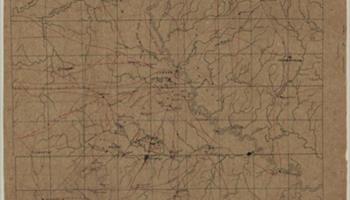
Camden Expedition Sites
Consists of properties associated with the Camden Expedition of 1864.
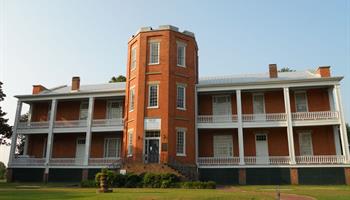
Old US Arsenal
Old U.S. Arsenal Building at 9th and Commerce streets in Little Rock, Pulaski County, the starting point of Frederick Steele's Union troops.
NHL designated 04/19/94
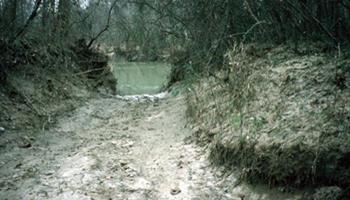
Elkins Ferry Battlefield
10 miles north of Prescott on the Little Missouri River at the
Clark-Nevada County line, where Federal troops crossed the river against
staunch Confederate resistance April 3-4, 1864
NHL designated 04/19/94
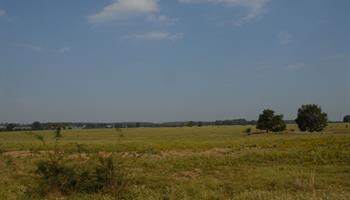
Prairie D'Ane Battlefield
Near Prescott, Nevada County, where the two armies skirmished between April 9-12, 1864, blunting the Union drive to Louisiana.
NHL designated 04/19/94
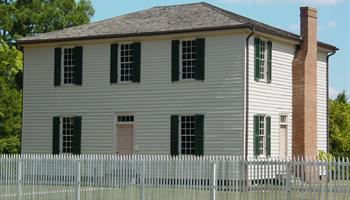
Confederate State Capitol at Old Washington State Park
Hempstead County, is an 1836 structure that figured prominently in the strategies of both the Confederate and Union armies.
NHL designated 04/19/94
External Site Link
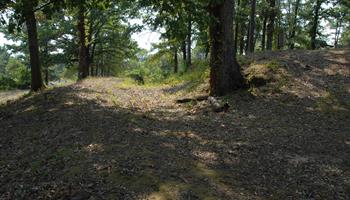
Fort Southerland and Fort Lookout
Fort Southerland on
Bradley Ferry Road and Fort Lookout on Van Buren Road are both located
near Camden, Ouachita County. Both sites were built by Southern troops
and used and improved by Union troops during the Federal occupation of
Camden
NHL designated 04/19/94
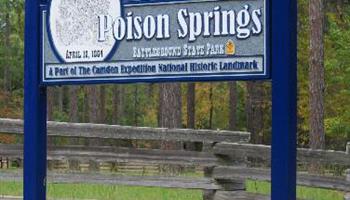
Poison Spring Battlefield
On Highway 76 near
Chidester, Ouachita County, where rebel forces attacked and decimated a
Union supply train on April 18, 1864, and inflicting 42 percent
casualties on the First Arkansas Colored Infantry Regiment.
NHL designated 04/19/94
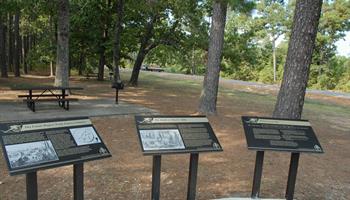
Marks' Mills Battlefield
Marks' Mills
Battlefield at the junction of Highways 8 and 79 near New Edinburg,
Cleveland County, where a second Union supply train was attacked on
April 25, 1864, and 1,300 of 1,600 Union troops involved were killed,
wounded or captured.
NHL designated 04/19/94
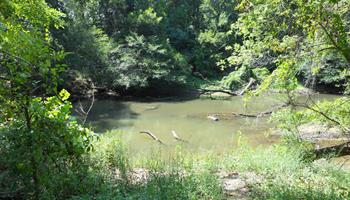
Jenkins' Ferry Battlefield
On highway 46 near
Leola, Grant County, where the Union army escaped across the swollen
Saline River after a desperate battle with pursuing Confederates on
April 30, 1864.
NHL designated 04/19/94

Arkansas Post National Memorial
located eight miles
southeast of Gillett via Highways 1 and 169 in Arkansas County. This
was the site of Spanish and French outposts and battles during the
American Revolution and the Civil War, from 1686 to 1865.
NHL designated 10/09/60
External Site Link
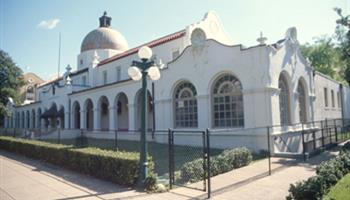
Bathhouse Row
On Central Avenue in Hot Springs, Garland County, contains eight spa bathhouses dating from 1911-35.
NHL designated 05/28/87
External Site Link
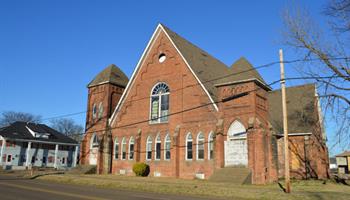
Centennial Baptist Church
At York and Columbia
streets, Helena, Phillips County, is nationally significant through its
association with Dr. Elias Camp Morris, who served as pastor from 1879
until his death in 1922. The period of his life from 1882 to 1922 was
his most productive period with respect to his efforts on the national
level to further the religious, political, and societal achievements of
African Americans. The church remains a symbol of those efforts in the
heyday of Jim Crow.
NHL designated 07/31/03
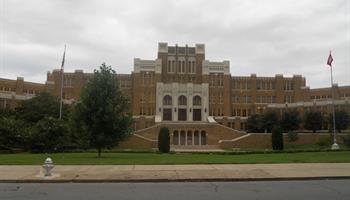
Central High School
At 14th and Park
streets in Little Rock, Pulaski County. This 1927 structure was the
focus of national attention during the desegregation crisis of 1957.
NHL designated 05/20/82
External Site Link
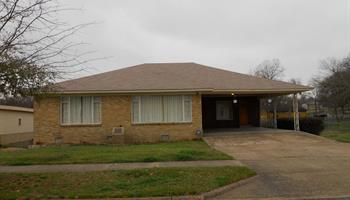
Daisy Bates House
1207 West 28th
Street in Little Rock was the de facto command post for the Central High
School desegregation crisis. The home served as a haven for the nine
African-American students who desegregated the school and a place to
plan the best way to achieve their goals.
NHL designated 01/03/01
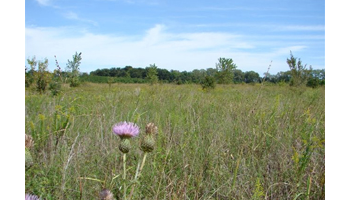
Eaker Site
Mississippi County, archaeological site with evidence of occupation from ca. A.D. 600-1450.
NHL designated 06/19/96
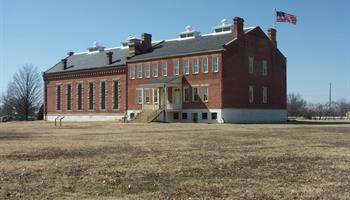
Fort Smith National Historic Site
At Fort Smith,
Sebastian County, an 1817-24 frontier fort established to keep peace
among Indian tribes, also the site of "hanging judge" Isaac C. Parker's
court.
NHL designated 12/19/60
External Site Link
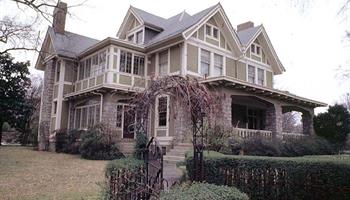
Joseph T. Robinson House
2122 Broadway in
Little Rock, Pulaski County, is a 1904 structure that was home to U.S.
Senator Joseph T. Robinson, Senate majority leader during President
Franklin D. Roosevelt's first term as President of the United States.
NHL designated 10/12/94
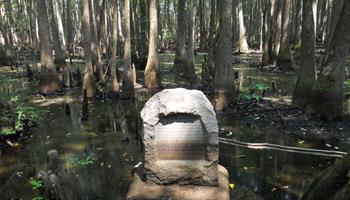
Louisiana Purchase Site
located at the
junction of Monroe, Lee and Phillips counties in eastern Arkansas, the
site in 1815, from which all surveys of land acquired in the Louisiana
Purchase were determined.
NHL designated 04/19/93
External Site Link
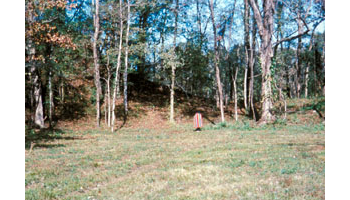
Menard-Hodges Mounds
Arkansas County, site
dates from the late Prehistoric era to the 1680s, with Baytown and
Mississippian components and evidence of contact with Europeans.
NHL designated 04/11/89
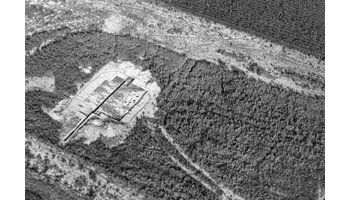
Nodena Site
Mississippi County, A.D. 1400-1700 Mississippian site.
NHL designated 07/19/64
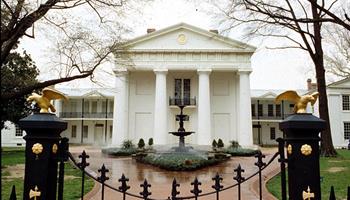
Old State House
1836 Greek Revival
structure that served as first state capitol, focal point of
Brooks-Baxter War, headquarters for early twentieth-century malaria
eradication efforts, and site of Bill Clinton's acceptance of 1992 and
1996 presidential victories.
NHL designated 12/09/97
Learn More
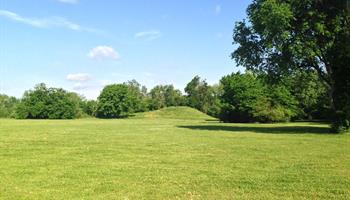
Parkin Archaeological State Park
Off Highway 64 at
Parkin, Cross County, an A.D. 1300-1600, Mississippian site that may
have been visited by Hernando De Soto's expedition in 1541.
NHL designated 07/19/64
External Site Link
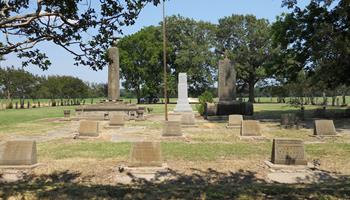
Rohwer Relocation Cemetery
Off Highway 1 at Rohwer, Desha County, the cemetery for a camp where Japanese-Americans were interned from 1942-45.
NHL designated 07/06/92
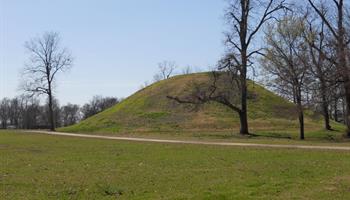
Plum Bayou Mounds Archeological State Park
Off Highway 165 in Scott, Lonoke County, site of Native American activity from A.D. 700-1800.
NHL designated 06/02/78
External Site Link
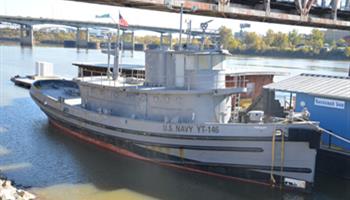
USS Hoga (YT-146)
The USS Hoga (YT-146),
located on the north bank of the Arkansas River at the Arkansas Inland
Maritime Museum in North Little Rock, Pulaski County, was present at the
bombing of Pearl Harbor on December 7, 1941.
NHL designated 06/30/89